Author Archives: Betel Hailu
Author Archives: Betel Hailu
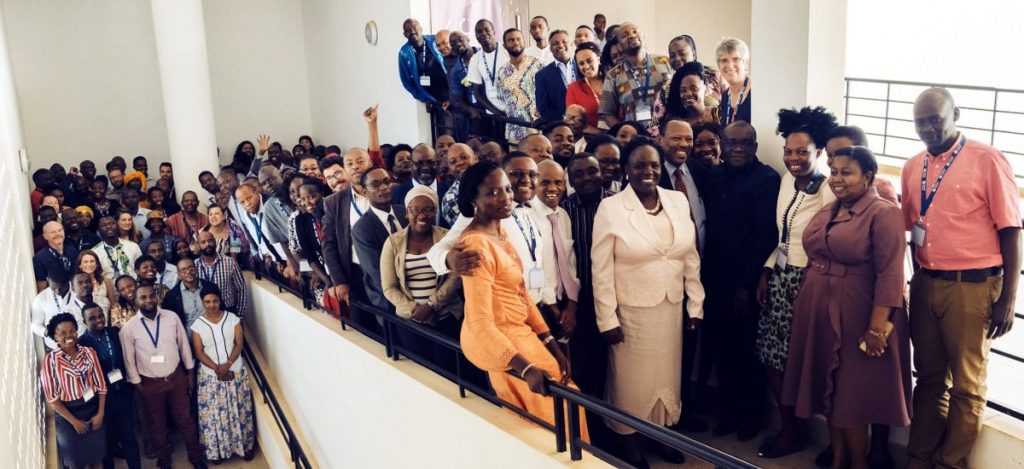
The 4th Summit on Community Networks in Africa took place in Dodoma, Tanzania from 28 October to 2 November 2019 in partnership with the Association for Progressive Communications (APC) and hosted by the University of Dodoma. The format consisted of two days of valuable training sessions on defining the community network (CN) movement in Africa, the importance of exclusivity and communications in building CNs, and strategies for sustainability cooperative models among others. The next two days were dedicated to plenary sessions, which focused on discussions to promote the creation and growth of community networks, increase collaboration between CN operators in the region, and improve their business skills. The Summit concluded with a two-day site visit to the Kondoa Community Network for more hands-on technical learning and sharing of best practices.
This year, the Summit received 134 participants from 18 countries globally: Argentina, Cameroon, Canada, Democratic Republic of the Congo, France, Germany, Ethiopia, Kenya, Liberia, Malawi, Namibia, Nigeria, South Africa, Spain, Tanzania, Uganda, the U.K., and the U.S. Of these 36 participants were women and 77 participants were from Tanzania. The participation of women was notable – and important in addressing gender gaps related to access in particular.
Community Networks provide Continue reading
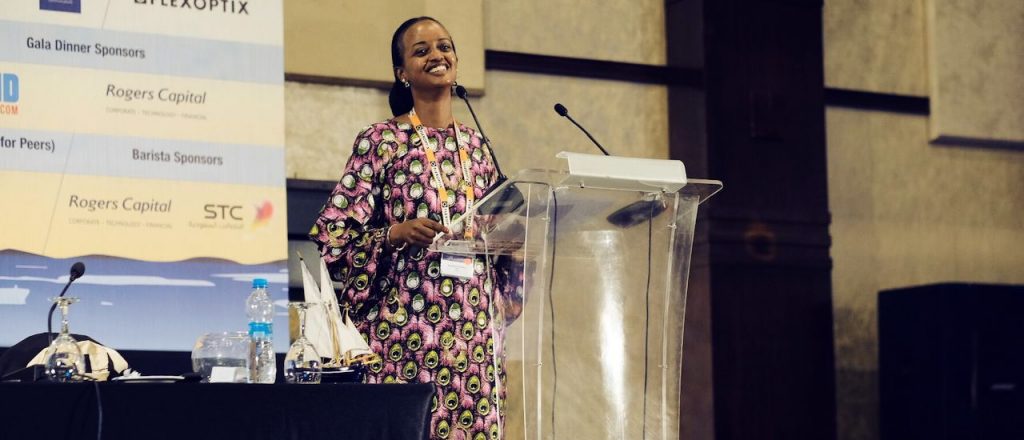
It’s been a record-breaking year: 97 women attended AfPIF 2019, the highest ever, showing the fruits of diversity efforts from organizers and sponsors.
In the last three years, there have been fellowships targeting women in engineering, supported by organizations like Workonline, Google, LINX, and Akamai. There’s also been a working lunch, where participants discuss the best way AfPIF can be more inclusive to women.
As the curtains fell on the tenth edition of AfPIF, it was clear that the future is looking bright, with 367 men and women attending, representing 59 countries: 202 from Africa, 36 from Europe, 16 from America, and 13 from Asia.
The first panel of the day was dedicated to looking back at the challenges in the last ten years, identifying the opportunities going forward, and what we all must do in order to guarantee business growth and better connectivity for the region.
One of the key points was that the traditional telco model is changing, and companies will have to adapt in order to stay relevant. Seacom, for instance is exploring other business opportunities as the demand for traditional infrastructure falls and local content grows, leading to formation of ISPs that can survive largely Continue reading
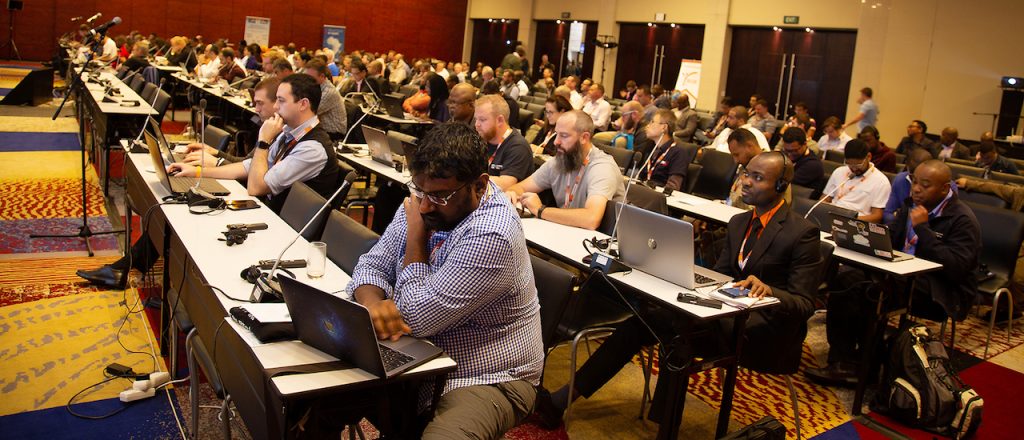
In the last five years, Africa’s international traffic patterns have changed, with international and intra regional traffic growing, according to the latest statistics from Telegeography, presented at this year’s AfPIF.
Johannesburg, Cape Town, Lagos, and Nairobi maintain their top hub status, but Cotonou, Kigali, Libreville, Abidjan, and Dakar have emerged as major hubs as international traffic grows. Cotonou recorded 88Gps between 2018 and 2019, showing a 77% growth, while Kigali recorded 75Gbps, a 92% growth, and Libreville had 113Gbps at 71% growth.
This was attributed to a drastic reduction in connectivity costs, which led to more data center space and eventual demand for more capacity to other international hubs. West African connection, especially between Dakar, Abidjan, Accra, and Lagos has also increased.
Telegeography monitors international transit traffic and the presentation was one of the highlights of the day. Domestic traffic is a bit harder to capture but Telegeography promised to work with more providers to get future snapshots of the growing traffic.
The presentation by Telegeography explored the shifting connectivity landscape in Africa and its effect on interconnection hubs, showing that new hubs may soon emerge, as more and more cities reduce the cost of connectivity and invest in more Continue reading
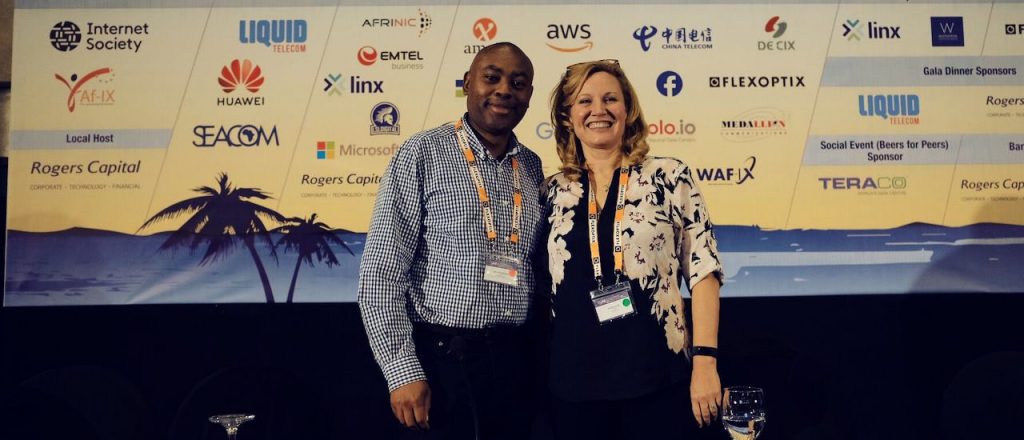
The tenth meeting of Africa Peering and Interconnection Forum (AfPIF) kicked off in Balaclava, Mauritius, with participants celebrating the achievements and looking forward to further collaboration.
Andrew Sullivan, the President and CEO of the Internet Society, opened by highlighting the importance of the meeting, which helps create a community that supports the growth of the Internet in Africa, identifies challenges, and ensures that understanding spreads.
In his speech, he noted that traffic exchanged inside Africa has expanded enormously as a result of the work done by AfPIF over the years. One of AfPIF goals is to increase the level of local content exchanged locally to 80% by 2020.
Sullivan, who has extensive experience working with international Internet bodies, emphasized the need for a robust community in Africa, led by Af-IX, that will continue working together to ensure that the Internet is built in Africa, according to the needs of Africans and the African network experience.
The annual meeting, brings together chief technology officers, peering coordinators and business development managers from the African region, Internet service providers and operators, telecommunications policymakers and regulators, content providers, Internet exchange point (IXP) operators, infrastructure providers, data center managers, National Research and Education Networks (NRENs), Continue reading
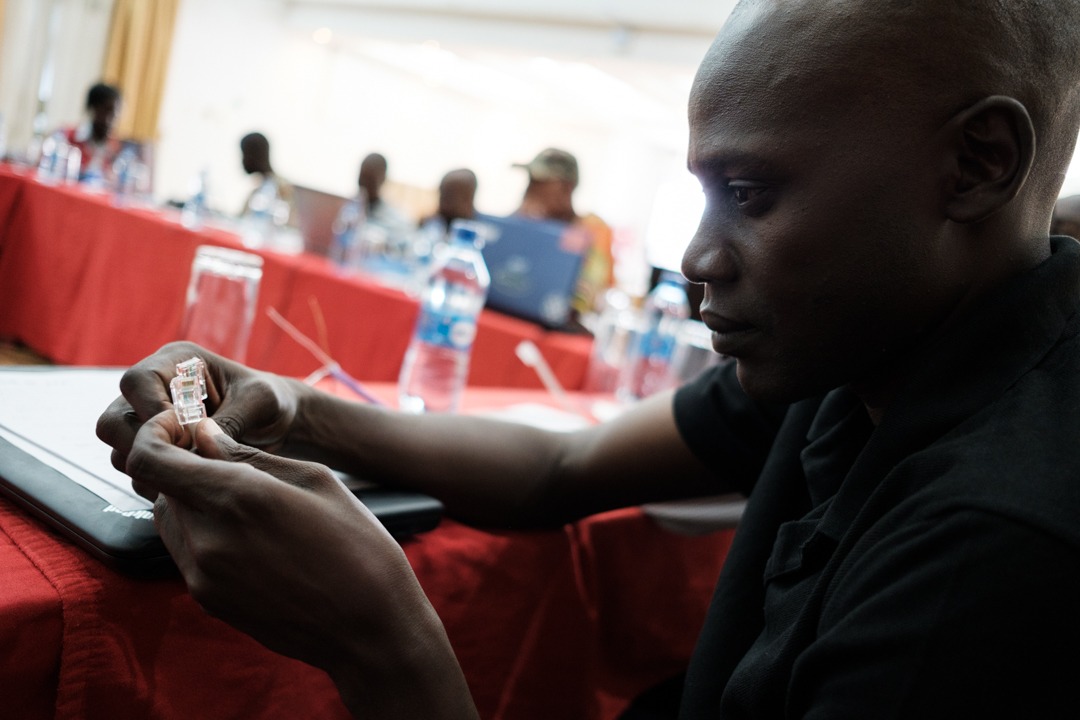
The 4th Summit on Community Networks (CNs) in Africa will take place in Dodoma, Tanzania from 28 October to 2 November 2019. The Summit hopes to promote the creation and growth of CNs, increase collaboration between CN operators in the region, and provide an opportunity for them to engage with other stakeholders.
The main activities planned include:
The event is targeted at CN operators, policy makers, researchers, evangelists, sponsors, and related networks such as community radio.
Last year over 100 participants from 20 countries, 13 of them African, gathered in Wild Lubanzi, in one of the deepest rural areas of the Eastern Cape. The 3rd Summit on CNs in Africa was organized by the Internet Society,Zenzeleni Networks NPC, and APC from 2-7 September 2018. For the approximate 40 participants from surrounding communities, the Summit was their first international conference – or conference of any kind. It was exciting to see them absorb everything and feel proud of their neighbors in Mankosi, home of the Zenzeleni project, one of many community networks in Africa.
CNs offer local solutions to the connectivity Continue reading
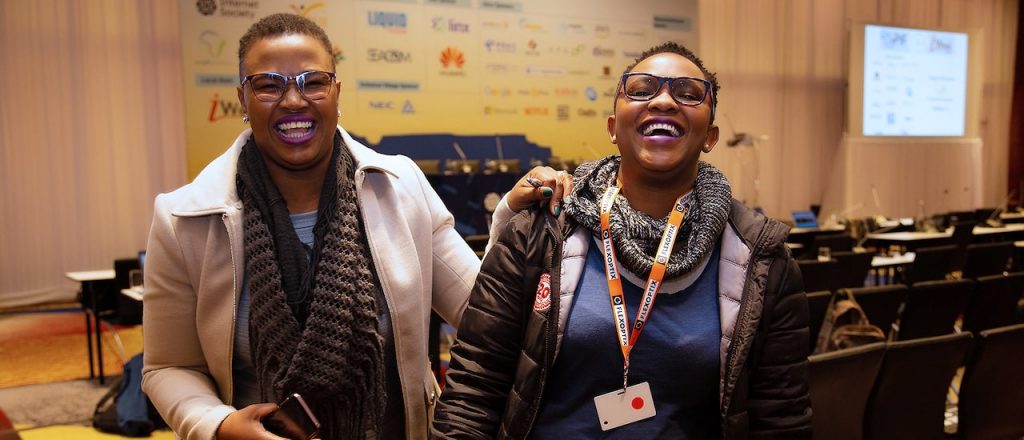
The 10th African Peering and Interconnection Forum (AfPIF-10) has selected twenty fellows to participate in the meeting next month.
The fellows are drawn from various fields such as interconnection, content, infrastructure, and policy. They represent Kenya, Lesotho, Somalia, Nigeria, Gabon, Burkina Faso, Mozambique, Tanzania, Madagascar, Democratic Republic of Congo (DR Congo), Egypt, Uganda, South Africa, Republic of the Congo (Congo), Ethiopian Cameroon, Benin, and Gambia.
Among the chosen fellows are six women sponsored by the Women in Tech partners. The women are drawn from Kenya, South Africa, Gambia, and Congo.
Representing DR Congo in this year’s AfPIF forum is Eric Nsilu Moanda. Eric works as a Senior Core Data Network Architect for Vodacom DR Congo. He has held the position at the Vodafone Group subsidiary for 12 years now, designing all IP Integration Solutions for the company.
“I look forward to learning how to produce attractive local content in Africa, for Africans, obtaining a fresh technical and marketing perspective, and gaining awareness in the evolution of continental interconnection projects,” Eric said.
In the past, Eric has peered on integrating Vodacom to KINIX (Kinshasa Exchange point) and he also worked on the Internet update link for the CDN of Kinix via Continue reading
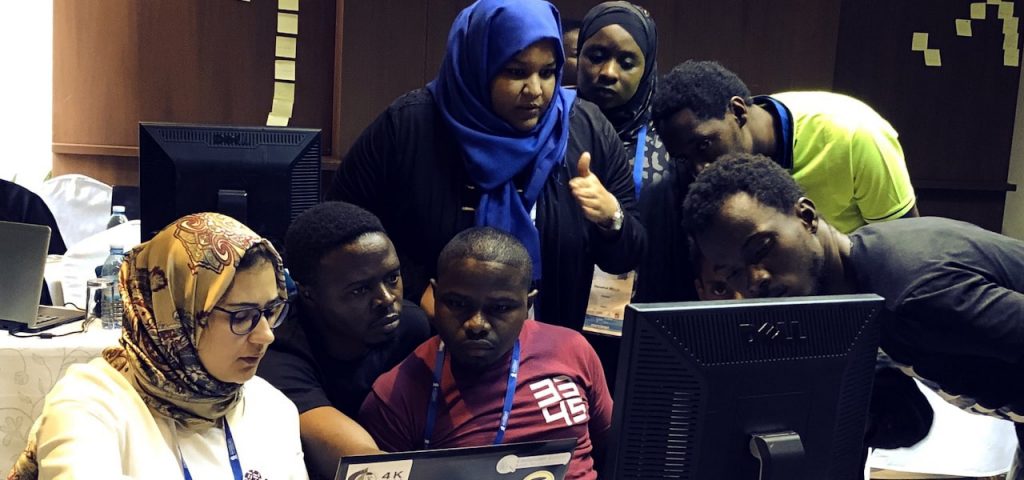
The Internet Society and AFRINIC collaborated to organize the 3rd Hackathon@AIS in Kampala, Uganda, which took place alongside the 2019 Africa Internet Summit. The event attracted more than one hundred participants who took part in five different tracks at the event. The event has grown from three tracks and 39 participants in 2017 and three tracks with 75 participants in 2018, to five tracks with 100 participants this year. Cisco DevNet has been helping organize the event since the first edition, and this year, they sponsored t-shirts for the Hackathon.
Objectives
The goals of the Hackathon@AIS and other open standards promotion activities in the African region are to identify, encourage, and expose engineers from Africa to open Internet Standards development, so that they can contribute to the work at organizations such as the Internet Engineering Task Force (IETF).
Format
The event ran for two days, organized as follows:
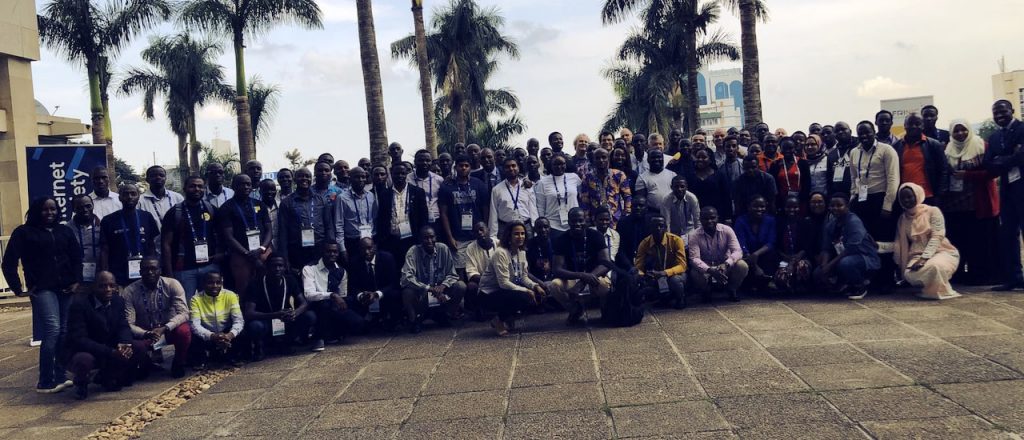
What is Hackathon@AIS?
The Internet, with its endless supply of knowledge and information, has become a strategic element in nearly all economic endeavors in Africa. To build tactical awareness among primary stakeholders as well as resiliency and robustness into Internet-enabled grids, the Internet Society and AFRINIC have organized the third Hackathon@AIS event, which is taking place in Kampala, Uganda, from 19-20 June 2019.
Network engineers, software developers, and computer science students from across Africa are gearing up for another round of collaborative computer programming aimed at introducing participants to existing and evolving Internet standards development that can help further their careers through shared skillsets.
The first Hackathon@AIS was held in 2017 in Nairobi and attracted 39 participants from 12 countries. The second event, held in 2018 in Dakar, attracted 75 participants from 15 countries. Both events consisted of three different tracks led by expert facilitators from across the globe. This year, the event consists of five tracks spanning different fields, and again we’ve called on expert facilitators from around the world to share their expertise and guidance.
The Hackathon is a breeding ground for talent that can change the world through innovation and create productivity and efficiency in business. Continue reading
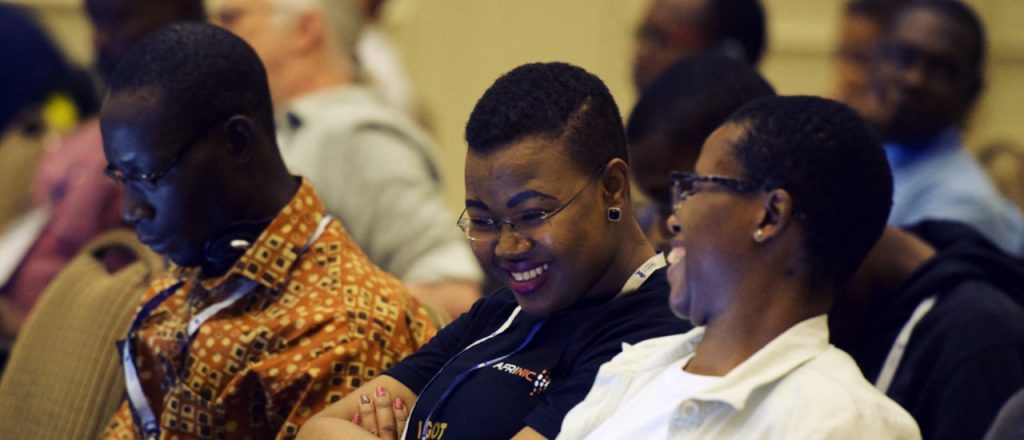
Join us in Balaclava, Mauritius for the 10th Africa Peering and Interconnection Forum (AfPIF) from 20-22 August 2019.
AfPIF attracts ISPs, content providers, governments, and IXP’s for three days of learning, sharing, and building business in Africa.
Why should you attend AfPIF-2019? Have a look through the AfPIF 2018 Summary Report, which contains briefs of presentations, emerging discussions, speakers, and sponsors.
Sponsorship opportunities are available to promote your business to these key audiences. Find out more about these opportunities here: https://www.afpif.org/afpif-10/sponsorship-brochure/
Register now to secure your place – and remember to check your visa requirements for travel to Mauritius.
Don’t miss Africa’s premier peering event – celebrating its 10-year anniversary this year!
The post Register for AfPIF 2019 appeared first on Internet Society.
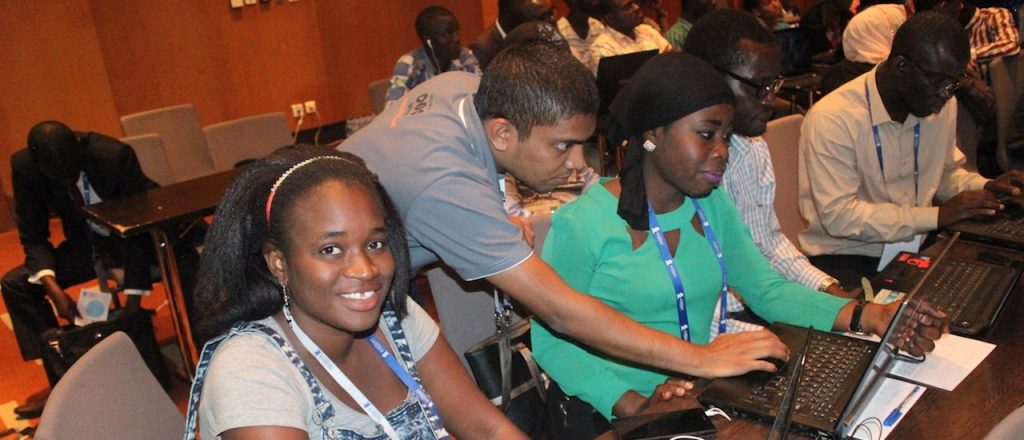
The third Hackathon@AIS will take place in Kampala, Uganda on the 19th and 20th of June 2019. The Hackathon@AIS is an event aimed at exposing engineers from the African region to Internet Standards development and usage. This will be the third event in the series following successful events held in Nairobi (2017) and Dakar (2018), each alongside the Africa Internet Summit (AIS).
See what was covered in 2017 and 2018 Hackathons@AIS here:
2017 Hackathon@AIS
2018 Hackathon@AIS
The event is targeted at network/system engineers, software developers, and/or computer science students to introduce them to existing and evolving Internet standards development that can help further their careers.
Applications for the event will open in April 2019.
Fellowships will be awarded to strong applicants where possible.
Applications will close on 12 May 2019.
For more information please contact Kevin Chege: [email protected].
Read testimonials from the 2018 Hackathon@AIS fellows.
The post Save the Date: Hackathon@AIS appeared first on Internet Society.
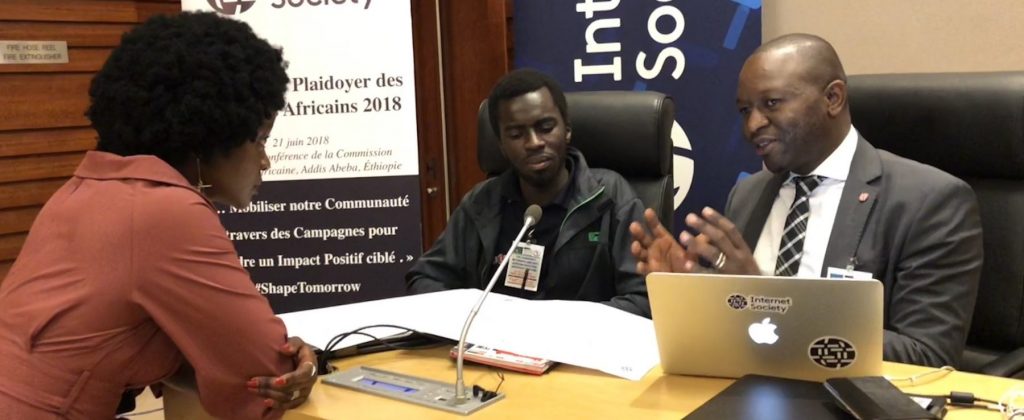
When and where
The 2019 African Chapters Advocacy Meeting will take place from 8-11 April 2019 in Addis Ababa, Ethiopia alongside an Internet of Things (IoT) Security and Privacy Engagement Workshop with the Africa Union Commission (AUC), the Africa Telecommunication Union (ATU), the Regional Economic Commissions (RECs), and other partners.
Why we are doing this
In 2019, the Chapter workshops/Advocacy meetings are our main vehicle to mobilize, strengthen, and engage our Chapters and SIGs around our 2019/2020 focus areas and initiatives. We believe that these meetings represent a unique opportunity to define concrete roles for our Chapters/SIGs to work with us on our global initiatives, and create local impact: “Think global, act local.” It is an opportunity to collect inputs from our regional community for future planning and priorities: “From Local to Global.”
How we are doing it
The Chapters meeting, which will mobilize, empower, and engage 30 fellows from 26 Internet Society African chapters and one global SIG to advance the Internet Society 2019 work in the Africa region with a special focus on “Building Trust” (IoT Security Campaign, Privacy & Personal Data Protection, Encryption, User Trust, and Internet Restrictions).
This meeting is also an Continue reading
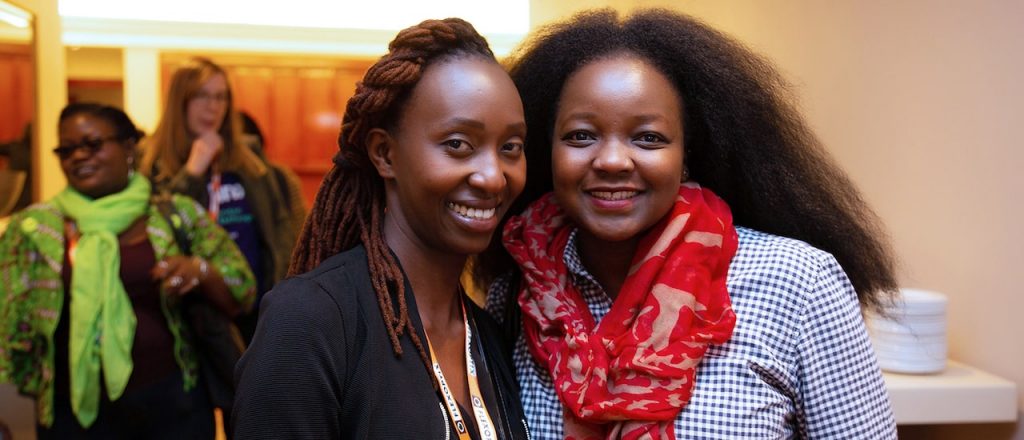
The Internet Engineering Task Force (IETF) is the premier Internet standards body, developing open standards through processes to make the Internet work better. It gathers a large, international community of network designers, operators, vendors, and researchers concerned with the evolution of the Internet architecture and the smooth operation of the Internet. Core Internet technologies such as DNS, routing and traffic encryption use protocols standardized at IETF.
The IETF holds three meetings yearly which are livestreamed and can be followed individually, or with others sharing similar interest at a common venue. The next IETF meeting will be held from 25-29 March 2019 in Prague. The usual audience for an IETF meeting is network engineers, system engineers, developers, and university students or lecturers in information technology fields.
The Internet Society Africa Regional Bureau is running an initiative to encourage remote participation in IETF meetings that aims to promote the work of the IETF. IETF Remote Hubs aim to raise awareness about the IETF and allow those who cannot travel to a meeting to participate in the meeting remotely. The meetings are streamed in English only.
Join one of the following IETF Remote Hubs in your area, raise your awareness about the IETF and engage in the various topics of Continue reading
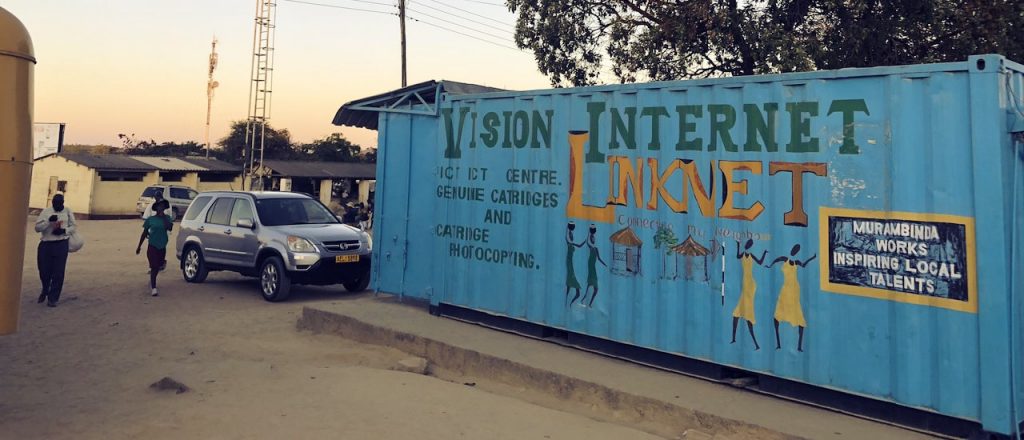
Over 100 community members, including head masters, government officials, teachers and heads of primary and secondary schools gathered in Buhera rural district council of Zimbabwe on 15 November, eager to engage in discussions related to the initial deployment of the Murambinda Works Community Network. Schools, health and the local authority facilities have been earmarked as the initial benefactors for the inaugural roll out of the Murambinda Works Community Network.
The CEO of Murambinda, Mama Emilie gave a welcoming speech followed by the district school inspector of Buhera who talked about the importance of equipping their schools with ICT. “We cannot imagine a good curriculum that has not taken into consideration ICT. The partnership with Internet Society is a blessing to the district. We want to support it until infinity,” he said. The inspector also mentioned some of the challenges they are facing in their schools including the lack of power, unavailability of computers and connectivity. (Since 2015, 1200 teachers have been trained in ICT, but couldn’t do much with their acquired knowledge.)
TelONE, the national Telecommunications parastatal company with infrastructure in Murambinda Town, was also present at the workshop. “One man cannot make it but we can work together Continue reading
The growth of cloud infrastructure in Africa has been credited with the growth of local content in many regions, and it holds the key for Africa’s ability to attract content carriers and distribution networks.
The first panel of day three at the Africa Peering and Interconnection Forum (AfPIF) was dedicated to discussing the current scenario of cloud infrastructure and what it will take to grow the sector further, get the market interested, and eventually grow the level of content hosted locally.
South Africa has the most extensive cloud market, compared to other African countries, and it took concerted efforts from the different players, under the ISP Association, for the market to be deregulated and the laws to be put in place. The laws can take time, but industry players agree the laws are vital to investments in the market.
Although the industry may be small in Africa, cybersecurity is key, as businesses are susceptible to cybercrime, just like other global operators. That means the enactment of cyber security laws in the different countries, and continued training and awareness by industry players.
Power and cooling is another vital part, with many countries enjoying monopoly of power distribution. Liquid Telecom said Continue reading
Africa’s dream of Cape Town to Cairo fiber connectivity has moved closer, with Liquid Telecom announcing that it has made considerable progress is signing agreements with regulatory authorities and partners within the route.
Liquid Telecom has an ambitious plan of reducing latencies in connectivity between Cape Town and Cairo. Currently, traffic is routed through Europe, with latencies of 209ms, and it will be reduced to 97ms.
In his keynote speech at the Africa Peering and Interconnection Forum (AfPIF), Ben Roberts, Liquid CTO, said that the project will be implemented through existing Liquid infrastructure within different countries, partnership with existing infrastructure providers, and regulators. The project is expected to be done by 2020 and to eventually connect East and West Africa.
Liquid is expecting the African Continental Free Trade Area (AfCFTA) agreement, signed and ratified recently, to drive city-to-city interconnectivity, as more countries look for ways to trade with each other and eventually exchange Internet traffic. The goal to increase intra-Africa broadband traffic.
Roberts projects the infrastructure currently being set up will be highly used by the youth, who have grown up online – through education, social media, and gaming applications. The Internet of Things is expected to grow; currently most Continue reading
The ninth edition of Africa Peering and Interconnection Forum (AfPIF) kicked off today, with more than 400 tech executive in attendance.
This year, the forum was organized and held jointly with iWeek- South Africa ISP Association’s premier tech event. The event is underway at the Cape Town International Convention Center.
This year’s event is dubbed AfPIF@iWeek has attracted tech executives, chief technology officers, peering coordinators and business development managers, Internet service providers and operators, telecommunications policymakers and regulators, content providers, Internet Exchange Point (IXP) operators, infrastructure providers, data center managers, National Research and Education Networks (NRENs), carriers, and transit providers.
The sessions started with an introduction by Nishal Goburdhan, a veteran of AfPIF, who traced the history of AfPIF, from its conception to the community event it is. The community took over the program three years ago, determining the speakers and the conference content.
How can you take advantage of AfPIF? Nishal suggested that the participants use peering personals sessions; this is like speed dating for networks – members give details of their AS numbers, where they peer, peering policy, contact information, and explain why other participants should peer with them. At the end of every session, participants get a Continue reading
A comprehensive view of Africa’s Internet peering and interconnection ecosystem from the region’s top networks and experts, opportunities to strengthen and build new peering relationships with over 300 attendees using an open to all “bilateral meeting” scheduling tool, insightful presentations, studies and reports delivered by a strong lineup of speakers, and a technical village are some of the interesting activities that participants to iWeek/AfPIF 2018 can expect.
The sessions have been spiced up to include a technical village, with vendors offering masterclasses, a super teachers award honoring Africa’s tech teachers, and a beers for peers session, to allow participants to network more.
“This year’s agenda reflects the growing interests from our rapidly evolving regional industry with an increased focus on regional networks, carrier-neutral data centers, cloud services, and regulation in addition to our traditional line-up of quality technical content,” said Kyle Spencer, Co-Coordinator of the African IXP Association.
This year, the Africa Peering and Interconnection Forum (AfPIF) joined hands with the South Africa ISP Association to hold sessions during iWeek. This provides extensive training sessions and opportunities for participants.
“Participants will have opportunities to meet with industry leaders to discuss one on one or in groups the various issues around Continue reading
The annual Hackathon@AIS, in its second year, is aimed at exposing engineers from the Africa region to open Internet Standards Development. This year, the event was held 9-10 May 2018 in Dakar Senegal at the Radisson Blu Hotel during the Africa Internet Summit (AIS-2018).
The event was attended by more than 75 engineers from 15 countries including 11 fellows who were supported to attend the event. The event featured participants with English and or French-speaking backgrounds encouraging collaboration to work. Organized into 3 tracks, the event allowed participants to choose which track they were interested in participating in. The tracks were as follows:
1. Network Time Protocol Track
Objectives:
Facilitators:
Participants were introduced to NTP and asked to test out an IETF draft and implement it in open source NTP clients.
Outcome:
Participants were able to successfully implement draft and made presentations demonstrating their work and accomplishments.
2. Network Programmability
Objectives:
The Hackathon@AIS is a yearly event, in its second year, aimed at exposing engineers from the Africa region to Open Internet Standards Development. This year, the event was held in Dakar Senegal at the Radisson Blu Hotel, from 9-10 May 2018, during the Africa Internet Summit (AIS-2018).
The event was attended by more than 75 engineers from 15 countries including 11 fellows who were supported to attend the event.

Adama Assiongbon
Hackathon@AIS has been a very good and enriching experience for me because it is a meeting of ICT sharing especially with the IPWAVE workshop which is a technology of the near future where we will be ready on the African continent to implement this technology and bring more to the development of the continent. It is up to us the beneficiaries of Hackathon@AIS to bring a plus to our communities. The idea of Hackathon is very beneficial for the development of Africa. Thank you AFRINIC and ISOC.
Abdeldjalil Bachar Bong
Coming from Chad, I have found the Hackathon@AIS to be a wonderful and collaborative meeting that I have never seen before. It has allowed me Continue reading
The application process for the Hackathon@AIS is now open. The Hackathon@AIS is an event aimed at exposing engineers from the African region to Open Internet Standards development and is co-organized by the Internet Society and AFRINIC. This will be the second event in the series following a successful event held in Nairobi last year during the Africa Internet Summit.
A list of the topics that will be covered this year can be found here.
Network/Systems engineers, software developers, and computer science students are encouraged to apply as engagement in open Internet standards development can help further their careers.
The event will be held on the 9th and 10th of May 2018 in Dakar, Senegal. If you are interested in participating AND can commit to being available over the 2 days, please complete the application form. Space is limited and successful applicants will be notified and then be enrolled in various online training sessions in the build up to the event.
Fellowships will be awarded to strong applicants where possible.
Applications close on the 8th of April 2018.
The post Applications Now Open for Hackathon@AIS appeared first on Internet Society.